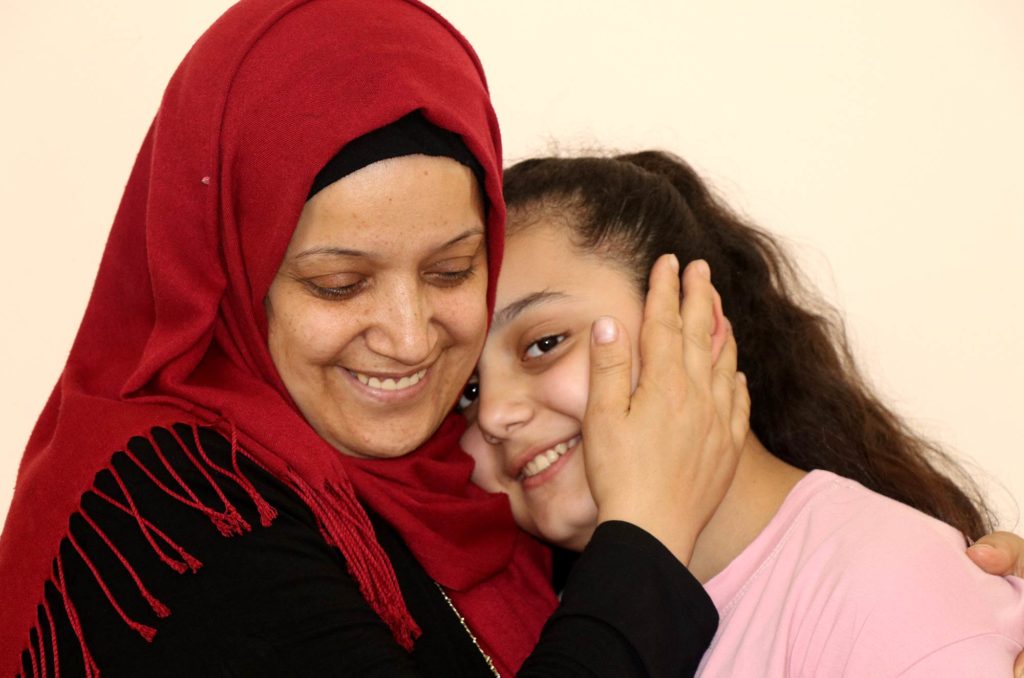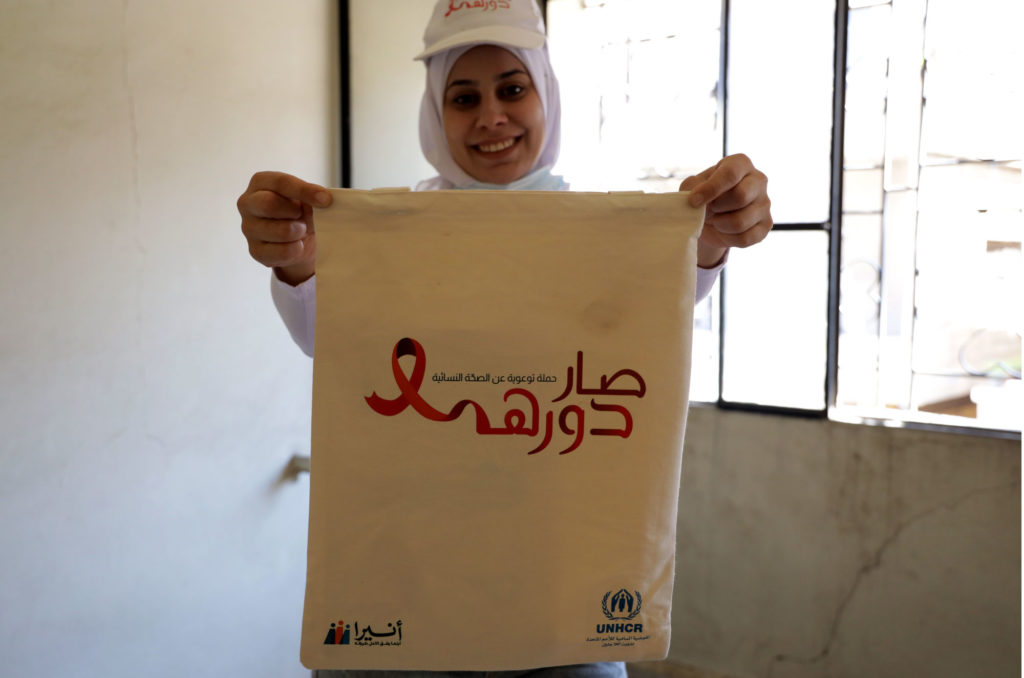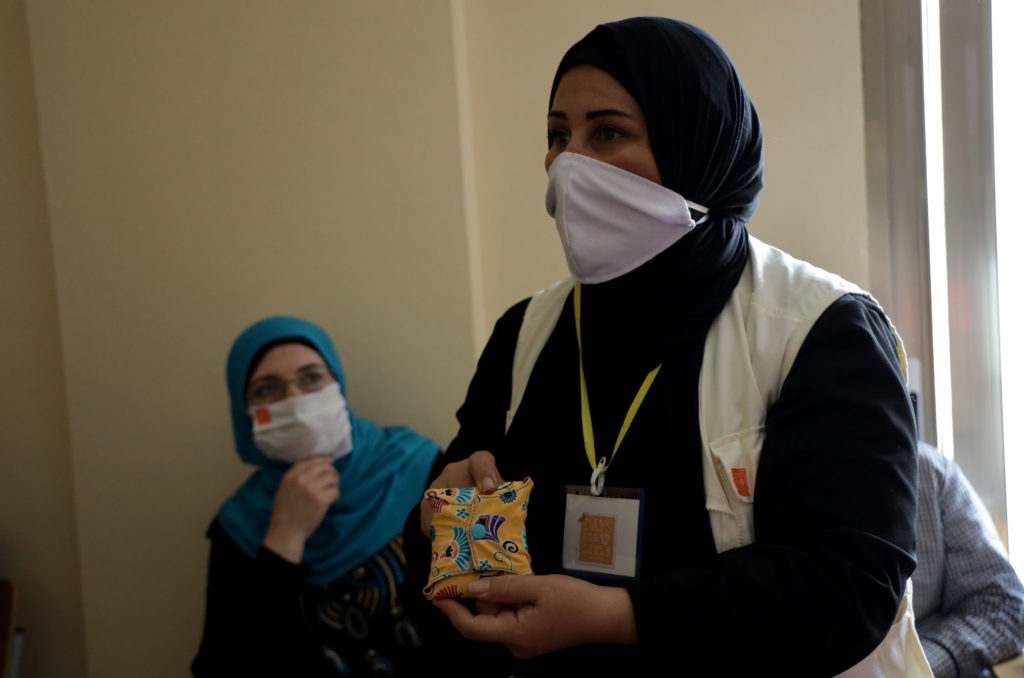Menstrual Hygiene Day: Ending Period Poverty
Posted in: Days of Observance
On Menstrual Hygiene Day and every day, Anera is committed to addressing period poverty in Palestine, Jordan and Lebanon. Since 2014, civil society organizations around the world have chosen May 28 as an awareness day to call attention to the widespread challenges facing women and girls in accessing the knowledge and supplies they need to care for their own health.
Menstrual Hygiene Day serves as a rallying point for people and organizations all over the world. More than that, however, the day is a time to urge world leaders to create policy changes that support safe menstruation.
Menstrual Hygiene Day 2024: #PeriodFriendlyWorld
In a world that is period friendly, the stigma, silence and shame around periods is gone! Products and period-education services are freely available to everyone, and no one with a period faces additional stress. This year is the ten year anniversary of Menstrual Hygiene Day, and the movement has only grown in that time.
In 2024, Anera published an On the Ground report, titled “Addressing Period Poverty: Challenges and Solutions in Lebanon, Gaza and Beyond,” highlighting the situation of period poverty in Lebanon and Gaza. In response to the current events in Gaza, the report analyzes the hidden struggle that comes with having a period amidst a war zone.
Due to severe shortages of supplies, many women have found other ways to meet their needs, such as using rags and dried tissue papers. These methods are imperfect in the short-term and are conducive to infections and longer-term health complications. In addition, the shortage of clean water and privacy creates cycles of shame around periods that makes them harder and harder to talk about. Anera has prioritized the distribution of hygiene kits to ease some of the suffering on the ground around periods.
Menstrual Hygiene Day 2023: Making menstruation a normal fact of life by 2030
Over 1,000 organizations, individuals and influencers partnered up to facilitate one of the largest conversations on period poverty globally. Collectively on this day, more than 705 million people became involved in the work to end stigma once and for all.
#WeAreCommitted #ItsTimeForAction #MHDay2022
In 2019, some 45% of girls in refugee camps worldwide had inadequate access to menstrual products according to the United Nations High Commissioner for Refugees, and a whopping 63% didn’t have enough underwear. In Lebanon, such indignities have almost certainly become even more widespread since the economic collapse of the last two years.
To combat the period poverty that has become epidemic in Lebanon among vulnerable communities like the Syrian refugee settlements, Anera and its partners have been distributing washable pads, underwear, and other hygiene products. Reusable pads spare vulnerable young women and girls from the indignity of being forced to go without proper sanitary products at a time when disposable pads and most other imported items are now priced out of reach.
In the remote Syrian refugee camp in Arsal, Lebanon, Anera began promoting menstrual hygiene and health in early 2021 through our UNHCR-funded waste and recycling program.
We are also conducting the program in Palestinian refugee camps, hosting awareness and education sessions and distributing menstrual hygiene supplies.
In conservative, traditional societies, menstruation is rarely discussed and many girls do not learn accurate information about how to care for their own bodies. However, with these educational sessions, Anera is trying to break the cycle of silence, so that mothers in this and future generations understand the importance of educating their daughters.


Realizing the need, Anera’s program to address the garbage crisis pivoted to incorporate promotion of the proper disposal of single-use period pads, menstrual health education and period product access.
Israa, a volunteer with Anera’s program, says that “Because of the economic collapse and the insane rise in the prices of personal hygiene items for women, such as sanitary pads and others, they are no longer available to everyone, which can lead to serious health problems.”


As an essential component of health and wellness for half the population, Anera now incorporates menstrual hygiene kits and supplies into all of it’s hygiene distributions, whenever appropriate.


To learn more, watch the video below for an engaging discussion of menstrual health issues facing women and girls in Lebanon with Anera’s Serene Dardari and Line Tabet Masri from Dawrati Lebanon.
OUR BLOG
Related
In this log, Anera provides updates on unfolding war in Palestine and our response. Please stay tuned here for the latest information. Questions? See our FAQ page April 25, 2025 April 24, 2025 Today we again hosted a health clinic…
How contributions to Anera’s emergency fund can directly impact vulnerable families. With the horrors unfolding in Gaza and political upheaval in the U.S., it can be easy to overlook the escalating crisis in the West Bank. But we cannot and…
Mental Health and Economic Hardship in Lebanon The aftermath of the war in Lebanon and the continued Israeli strikes, compounded by years of political instability and economic collapse, has taken a devastating toll on its people, particularly its youth. The…

